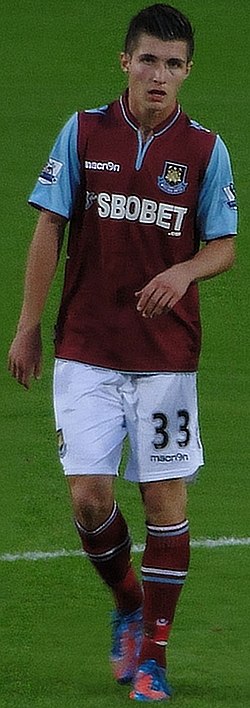
Colchester United Football Club is an English football club based in Colchester, Essex. Formed in 1937, the club competed in the Southern Football League from their foundation until 1950, [1] when they were elected to the Football League. [2] The club spent eleven years in the Third Division South and Third Division following the league's reorganisation in 1958, with a best finish of third place in 1957, one point behind rivals Ipswich Town and Torquay United. [3] [4] Colchester suffered their first relegation in 1961 as they finished 23rd in the Third Division, [5] but spent just one season in the Fourth Division as they were promoted in second position, behind Millwall by just one point. [6] This trend of relegation followed by promotion continued over the next few decades, before the club were eventually relegated from the Football League to the Conference in 1990. [7]
Contents
Player-manager Roy McDonough guided the club back to the Football League in 1992, winning the non-league double of the Conference title and the FA Trophy. [8] The club then won promotion to the Second Division in 1998 with a 1–0 Third Division play-off final win at Wembley against Torquay United. [9] The club were again promoted in the 2005–06 season under the stewardship of Phil Parkinson, gaining the opportunity to play second tier football for the first time in their history. After two seasons in the Championship, Colchester were relegated back to League One. [8] Colchester were relegated to the fourth tier for the first time in 18-years at the end of the 2015–16 season. [10]
Colchester United's first team have competed in a number of professional competitions, and all players who have played fewer than 25 of these matches, either as a member of the starting line-up or as a substitute, are listed below. Each player's details include the duration of his Colchester United career, his usual playing position while employed by the club, the number of matches started, the number of substitute appearances and total number of appearances, their total goals scored and total numbers of yellow and red cards collected. The players are sorted by total number of appearances, then by number of starts, then by player name in alphabetical order.





































